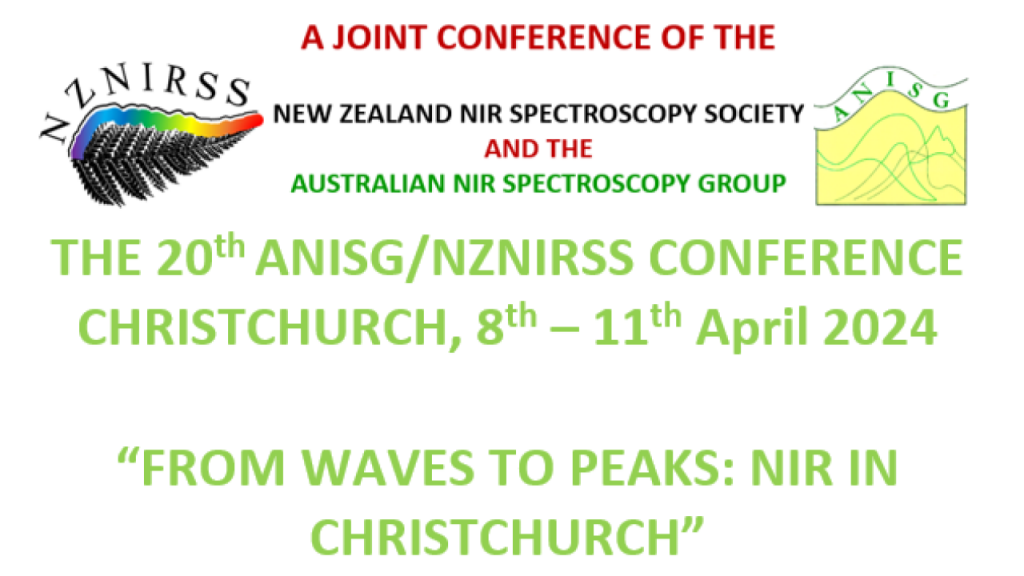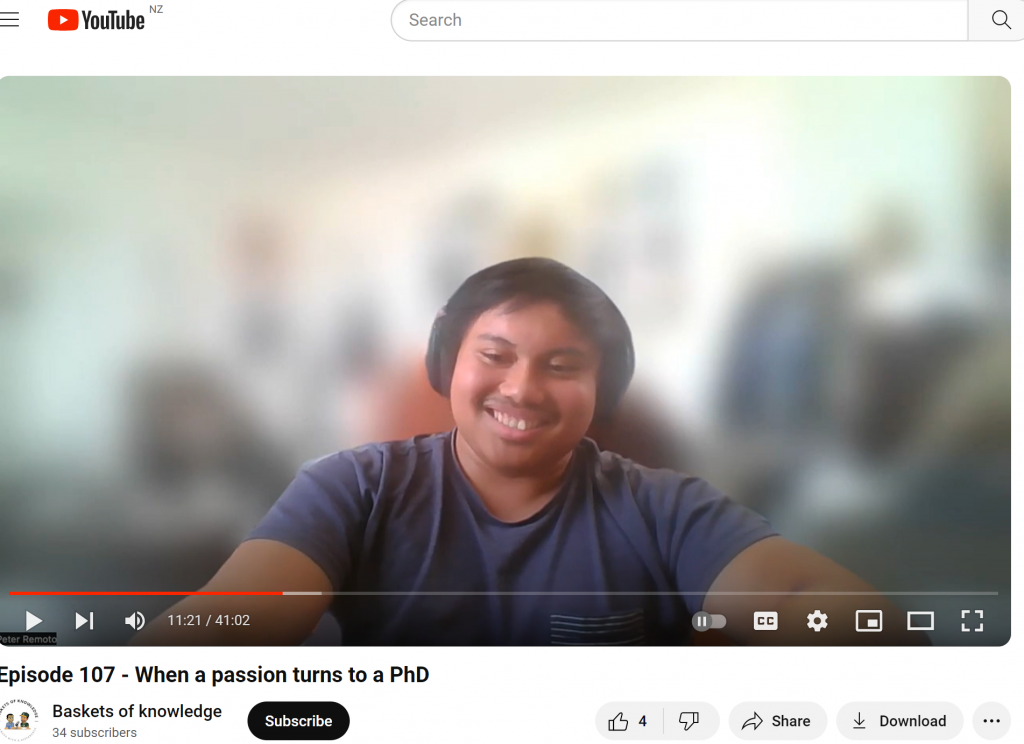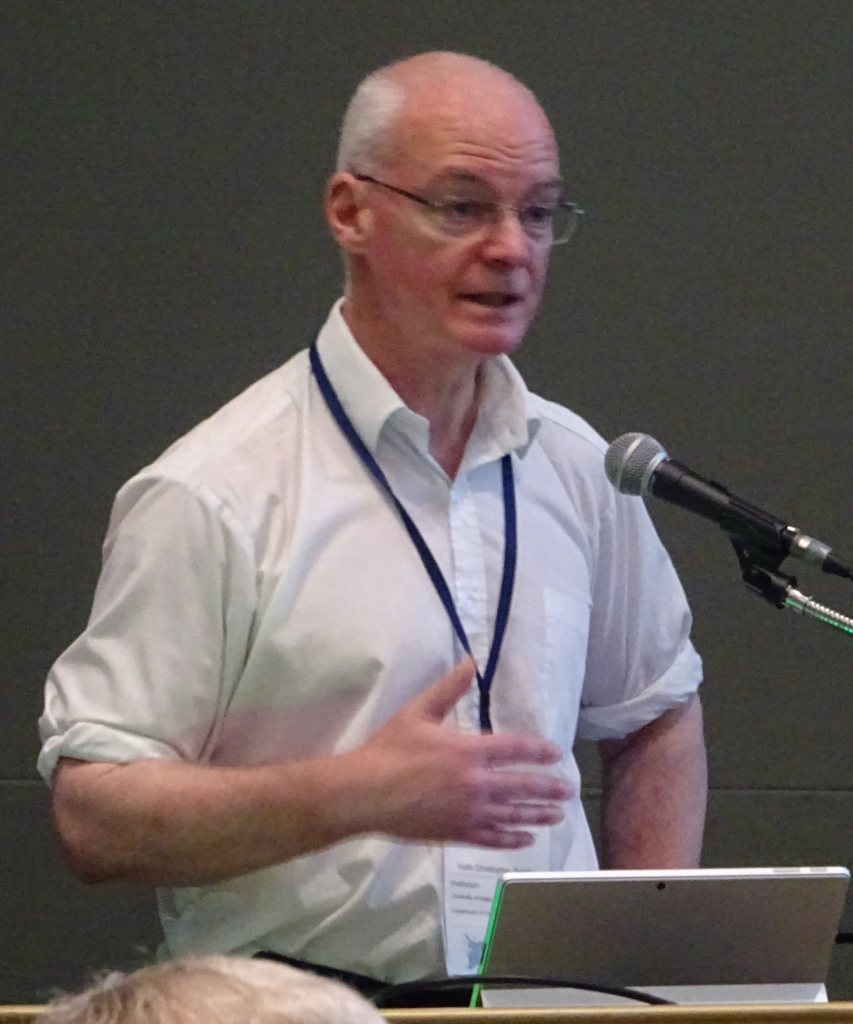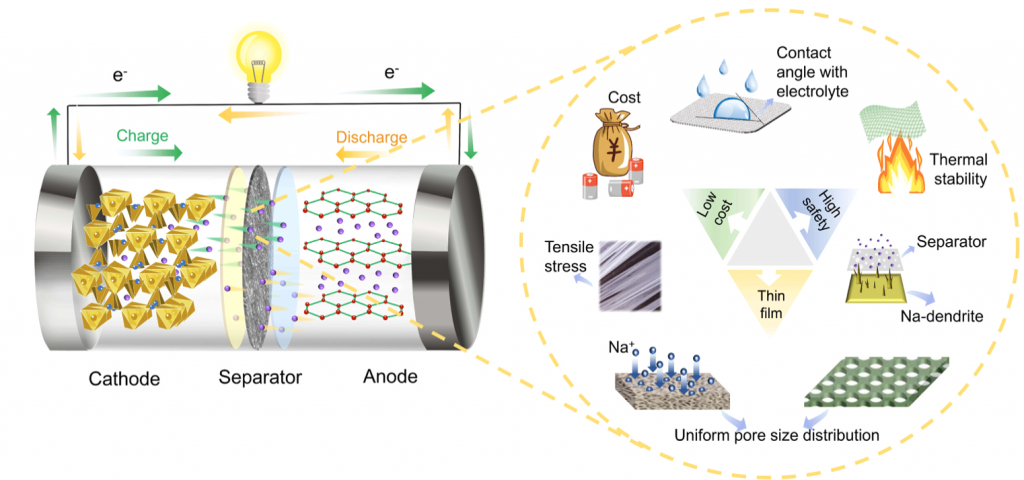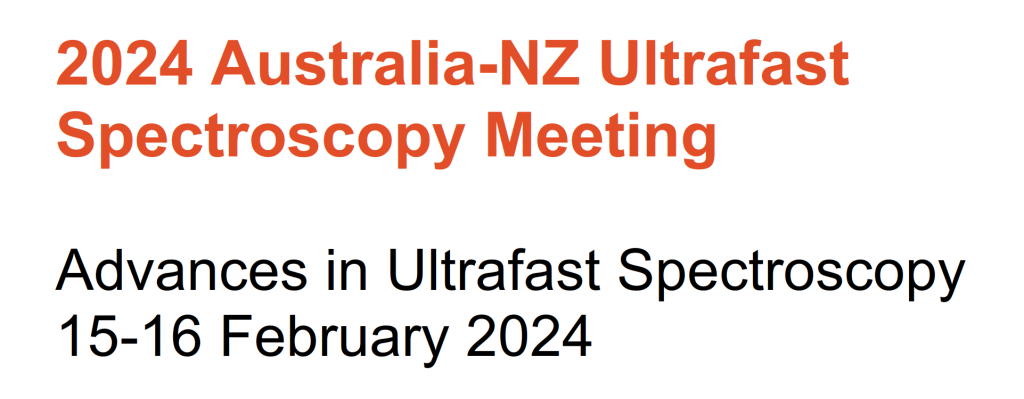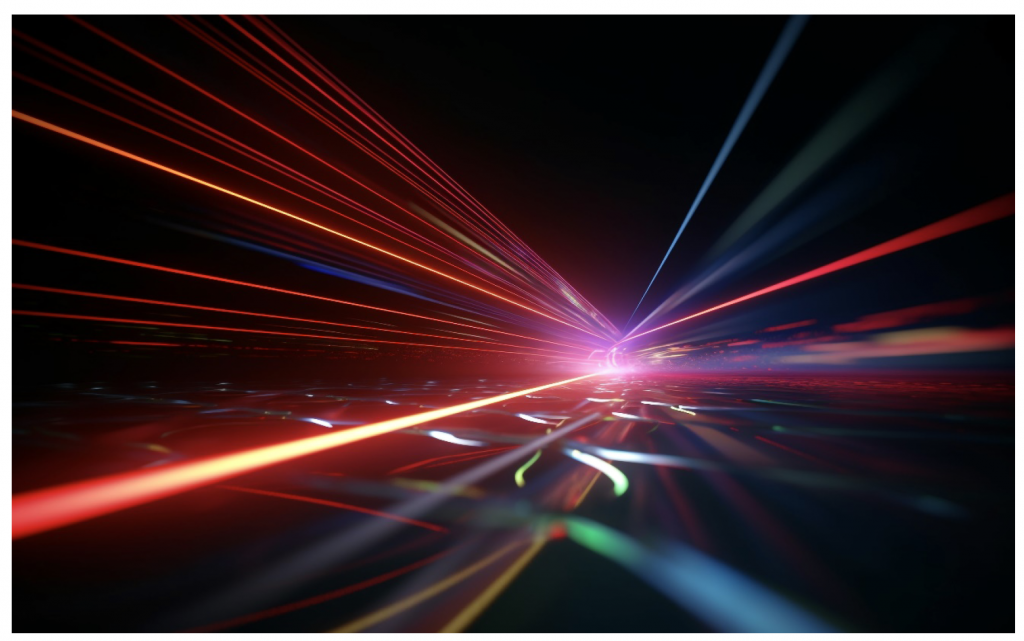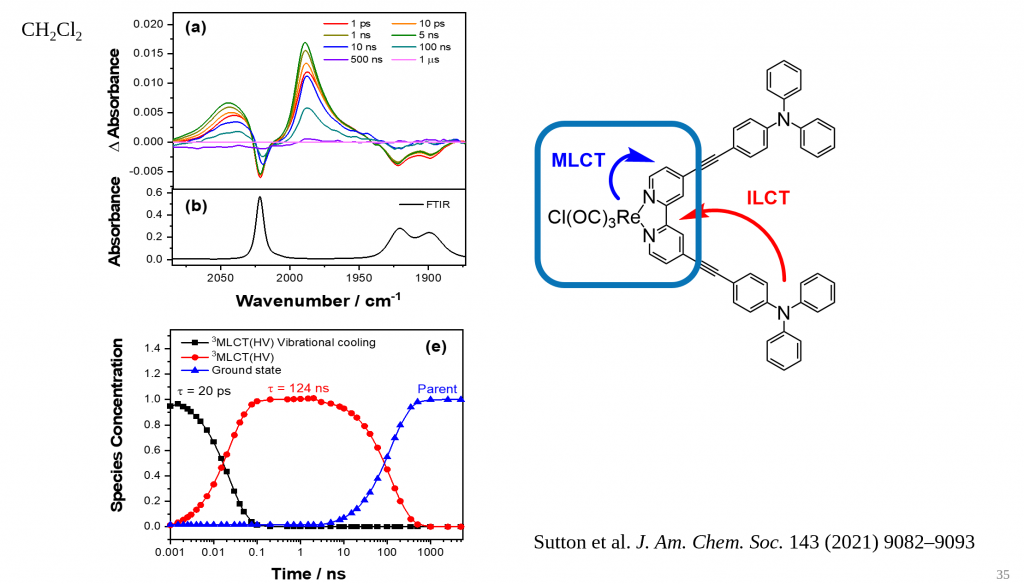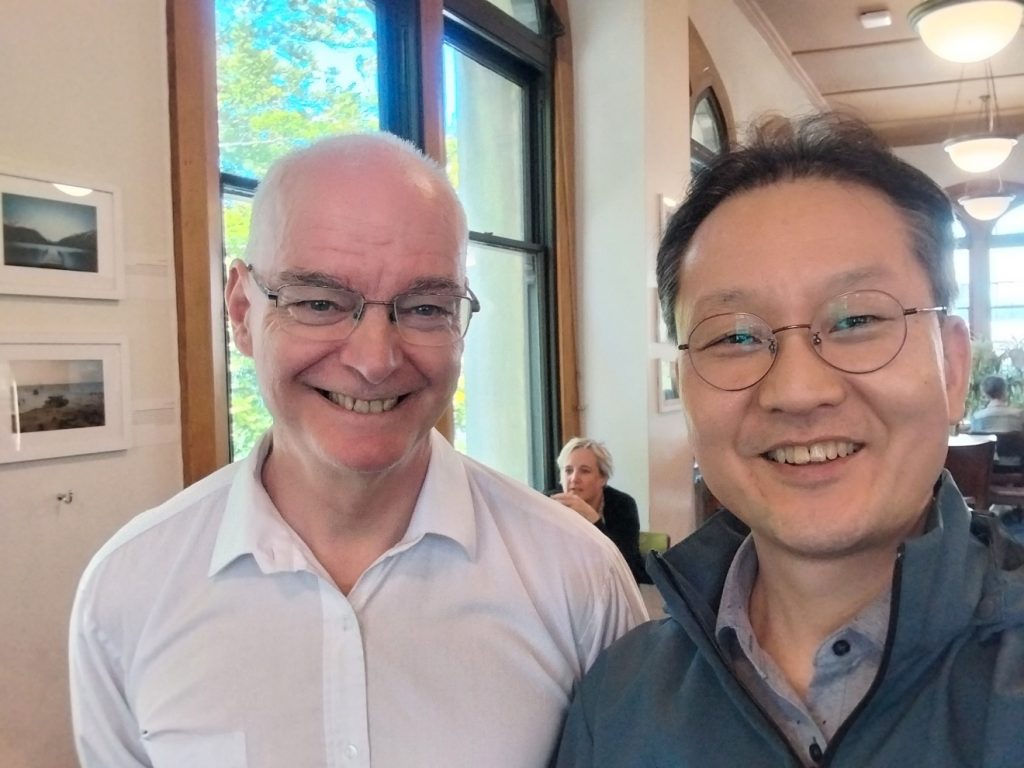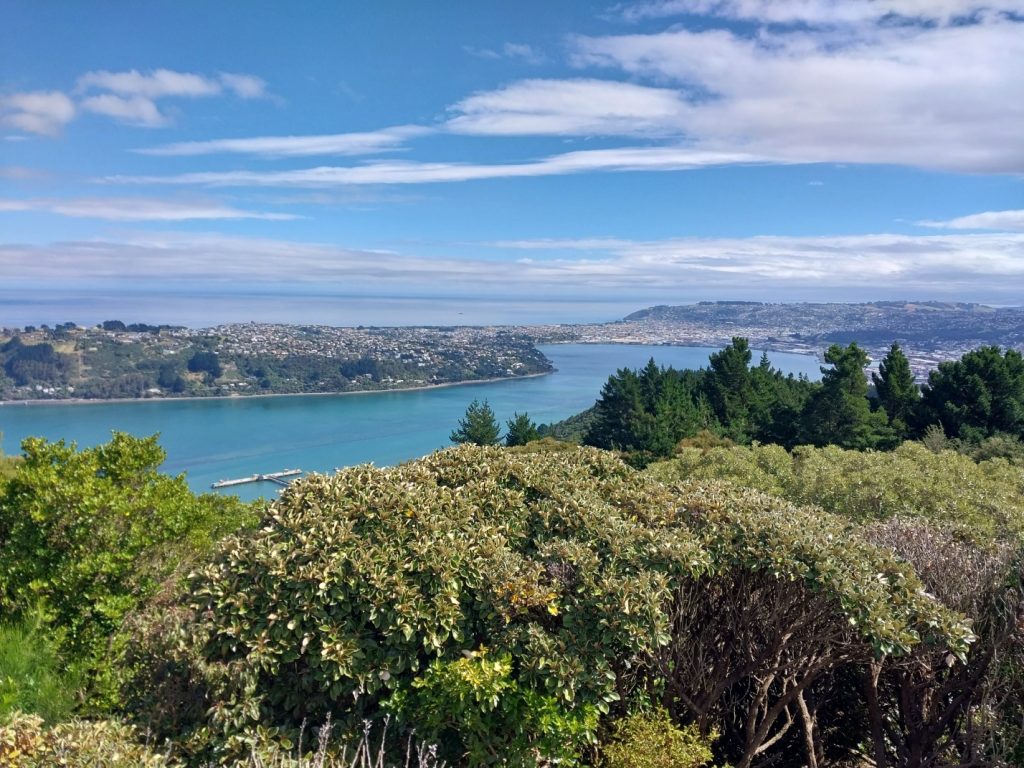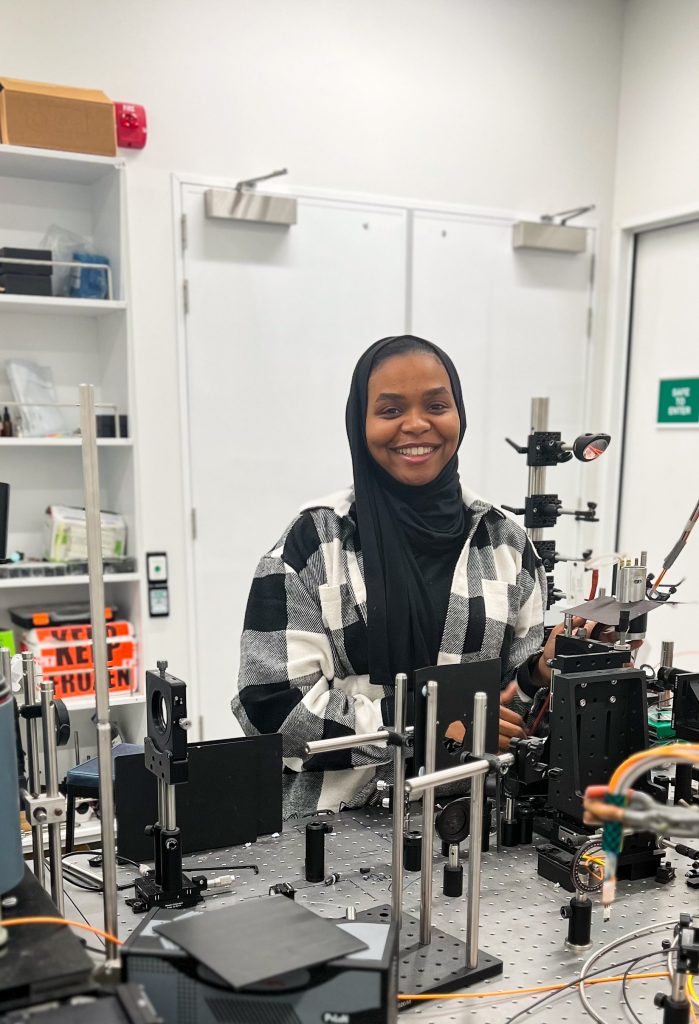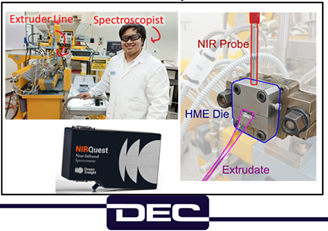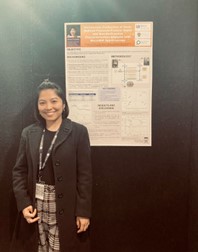Congratulations Jervee on winning conference support
Jervee Punzalan has been awarded the NZNIRSS Student Award for the 20th ANISG/NZNIRSS Conference in Christchurch, taking place from April 8th to 11th, 2024.
The award acknowledges Jervee‘s work for the near-infrared spectroscopy research and provides NZD 500 towards conference expenses. This will allow her to engage with experts, present research findings, and network with peers.
Listen to Peter’s cool podcast
Peter Remoto talking about his experiences at Uni and in research. Worth watching to the end; very interesting talk.
Great chat!
New paper in Nano Today
Congratulations to Keith Gordon and collaborators from Shanghai on their recent paper in Nano Today. The paper entitled “Functional separator materials of sodium-ion batteries: Grand challenges and industry perspectives.” (Nano Today 2024, 55, 102175. DOI: https://doi.org/10.1016/j.nantod.2024.102175) describes the issues around battery membranes and area that spatially offset Raman spectroscopy may be able to play a role in understanding.
Invited talk at the Australia New Zealand Ultrafast meeting
Keith gave an invited talk at the recent Australia New Zealand Ultrafast meeting in Sydney. He talked about “The creation of long-lived excited states through design: a computational and time-resolved experimental study”
PhD opportunities with Marsden grant
PhD positions in Chemistry, University of Otago, New Zealand
Two positions in synthetic inorganic chemistry and one in spectroscopy of inorganic systems
Title
Hydrogen generation with sustainable resources – a combined molecular, computational and engineering approach
Supervisors
Professor James Crowley and Professor Keith Gordon
Description
Hydrogen is an important fuel source and commodity chemical used in a wide range of industrial processes. Unfortunately, almost all the hydrogen produced currently is obtained from the steam reforming process which is both energy intensive and generates carbon dioxide as a by-product. There are already several photocatalytic systems, including bimetallic metal complexes that can efficiently generate hydrogen in this way. However, the current technologies use Noble metals which are expensive and rare. We will use earth abundant transition metals such as iron, cobalt and copper by re-designing the photocatalytic systems. This project is a Marsden funded project involving researchers in Jena, Germany (Profs Kupfer, Shillito and Weigand) and Nottingham, UK (Prof George) The project may involve visits to collaborators in Germany and the UK.
Kindly contact either jcrowley@chemistry.otago.ac.nz or keith.gordon@otago.ac.nz with any questions
Prior experience
The projects involve the synthesis of new metal complexes and their study using spectroscopy and computational chemistry. Two of the researchers will focus more on synthesis with the third undertaking computational studies and spectroscopic measurements including transient spectroscopy. Some overlap of expertise and interest is welcome. Experience in any of these areas is useful.
Stipend
NZD 35,000 per annum plus fees.
Application
As part of your application package, kindly include:
– CV (including 2-3 referee information)
– Cover Letter (this may include: a description of why you want to undertake a PhD; how your previous experiences have prepared you for the research project that you are applying for; what your passions are within or outside of academia)
Applications will be accepted beginning February until the positions are filled.
Kindly contact either jcrowley@chemistry.otago.ac.nz or keith.gordon@otago.ac.nz with any questions
Prof Han Young Woo visit
Prof Han Young Woo from Korea University in Seoul visited on Monday January 29 to discuss joint research on solar cell polymers. After an interesting discussion on the resonance Raman spectra and calculations Prof Woo enjoyed the good weather before heading off to a meeting in Wellington.
Welcome Keisuke Takabayashi
Keisuke Takabayshi is a Ph.D. student at Yamaguchi Lab, Akita University, Japan, and will stay in our lab for a month from January 19th.
Keisuke’s main interest is how crystal structure is changed and the matter is broken down using ultrashort laser pulses. He evaluates the crystal structure of laser-processed materials processed by homemade ultrashort pulsed lasers. Currently, he has performed measurements after processing, but in the future he would like to make time-resolved measurements. He is here to learn about the time-resolved experiments.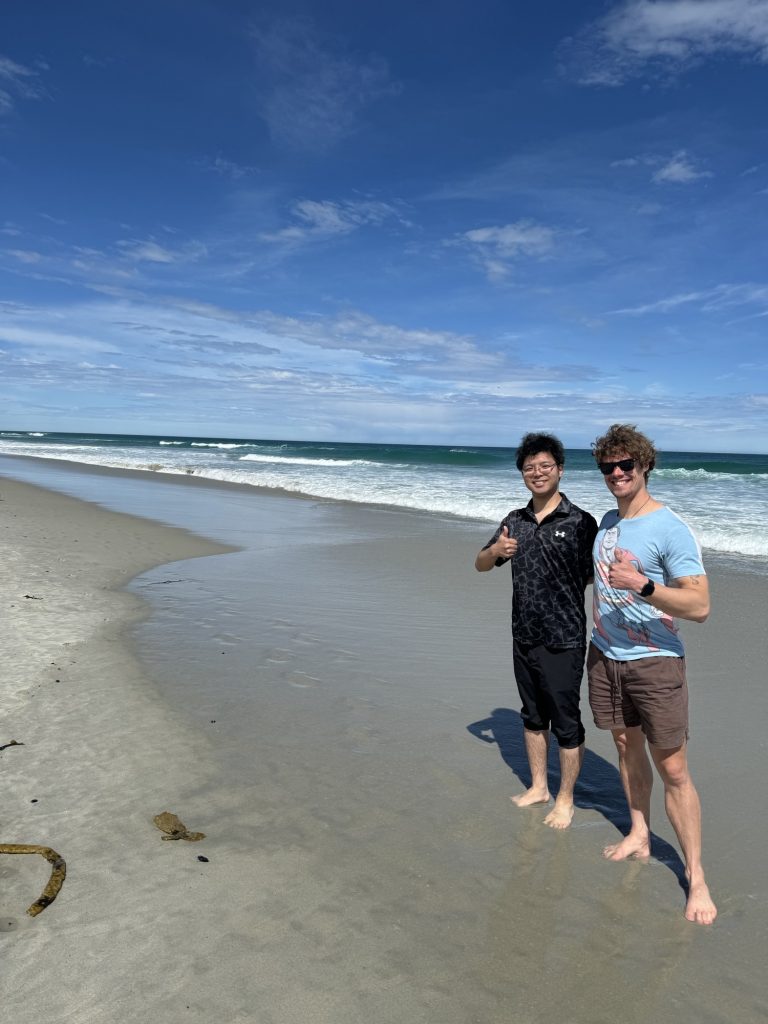
Sam and Keisuke at the beach
Welcome Hansa
Welcome to Elkhansa (Hansa) Elbashier to the group.
She is originally from Sudan and got her master’s and bachelor’s degree from Qatar University in Doha, Qatar. She began her PhD studies in October 2023 under the supervision of Prof. Ketih Gordon.
Hansa will be analysing the electronic properties and behaviours of artificial dyes using spectroscopic, electrochemical and Density functional theory techniques.
Welcome back Peter
Peter Remoto returns to the group as a PhD student after successfully completing a 6-month internship with DEC Healthcare’s R&D team from 1st May to 1st November. This internship was organised by Dodd-Walls and funded by Callaghan Innovation. Peter’s role was to explore Near-Infrared Spectroscopy (NIRS) to reliably monitor formulation accuracy during the Hot Melt Extrusion process.
Jervee goes to the 7th International Conference on Food Structures, Digestion, and Health
Jervee Punzalan participated in the 7th International Conference on Food Structures, Digestion, and Health in Queenstown from November 14th to 17th, 2023. She presented her poster on the use of Pulsed Electric Field and Non-Destructive Characterization Analysis with MicroNIR Spectroscopy. With reference to the poster, she also showcased a 90-second video and received recognition as one of the finalists.

